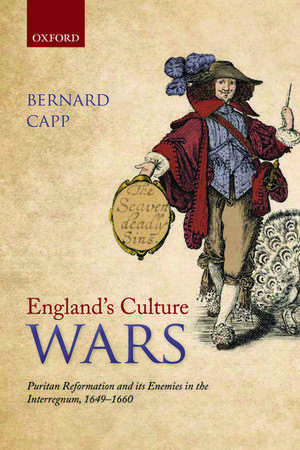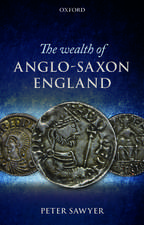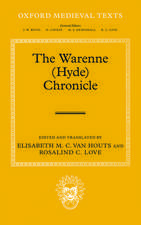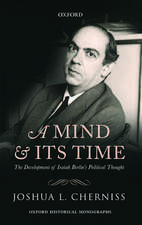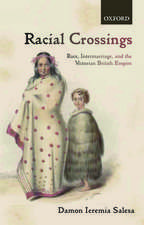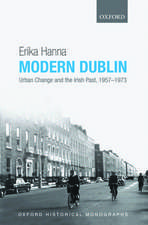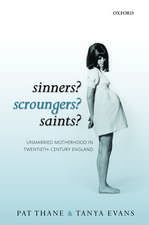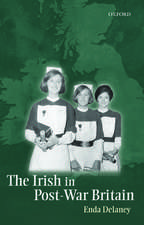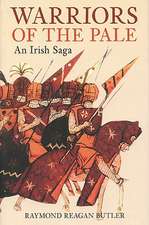England's Culture Wars: Puritan Reformation and its Enemies in the Interregnum, 1649-1660
Autor Bernard Cappen Limba Engleză Hardback – 5 iul 2012
Preț: 775.02 lei
Preț vechi: 1113.65 lei
-30% Nou
Puncte Express: 1163
Preț estimativ în valută:
148.30€ • 161.59$ • 124.96£
148.30€ • 161.59$ • 124.96£
Carte tipărită la comandă
Livrare economică 12-18 aprilie
Preluare comenzi: 021 569.72.76
Specificații
ISBN-13: 9780199641789
ISBN-10: 0199641781
Pagini: 288
Dimensiuni: 164 x 240 x 23 mm
Greutate: 0.59 kg
Editura: OUP OXFORD
Colecția OUP Oxford
Locul publicării:Oxford, United Kingdom
ISBN-10: 0199641781
Pagini: 288
Dimensiuni: 164 x 240 x 23 mm
Greutate: 0.59 kg
Editura: OUP OXFORD
Colecția OUP Oxford
Locul publicării:Oxford, United Kingdom
Recenzii
A cogent, balanced reassessment of Puritans in power and of their efforts to curb irreligion, profanity, sexual promiscuity, drunkeness and riotous recreation. All this is sometimes written off by historians as a complete failure . The locally varied patchwork presented here reveals far greater complexities and some suprising successes.
Through his command of a remarkable range of evidence, especially in the pamphlets and newsbooks and in local records, Capp gives us by far our fullest and most rounded account of the topic.
a well researched, clearly structured, and cogently argued re-assessment of England's mid seventeenth-century culture wars.
The book as a whole is a pleasure to read - lucidly written, perhaps its greatest strength is the richness of the historical detail, especially from legal records, that Capp musters to support his argument.
Using local situations as illustration, he paints the reader a lively and colourful picture of the cultural backdrop to the society in which the reformers preached, admonished and legislated.
This book is a thorough catalogue of the reform initiatives in every sphere of English life in the 1650s ... a survey of the culture wars across the whole country during their most significant decade. It is a resounding success, bringing into focus a wealth of vivid detail.
England's Culture Wars sheds considerable light on the postrevolutionary history of seventeenth-century England.
Through his command of a remarkable range of evidence, especially in the pamphlets and newsbooks and in local records, Capp gives us by far our fullest and most rounded account of the topic.
a well researched, clearly structured, and cogently argued re-assessment of England's mid seventeenth-century culture wars.
The book as a whole is a pleasure to read - lucidly written, perhaps its greatest strength is the richness of the historical detail, especially from legal records, that Capp musters to support his argument.
Using local situations as illustration, he paints the reader a lively and colourful picture of the cultural backdrop to the society in which the reformers preached, admonished and legislated.
This book is a thorough catalogue of the reform initiatives in every sphere of English life in the 1650s ... a survey of the culture wars across the whole country during their most significant decade. It is a resounding success, bringing into focus a wealth of vivid detail.
England's Culture Wars sheds considerable light on the postrevolutionary history of seventeenth-century England.
Notă biografică
Educated at Pembroke College Oxford, Bernard Capp has taught at Warwick since 1968 as Lecturer, Senior Lecturer, Reader, and Professor from 1994. He became head of Department in the early-mid 1990s and has been a Fellow of the British Academy since 2005. Capp formally retired in 2010 and is now Emeritus Professor, but still teaches part-time. He has published five books and numerous articles and essays on a wide range of social, cultural, and religious themes in early modern English history. He has also made numerous radio and TV contributions over the years.
